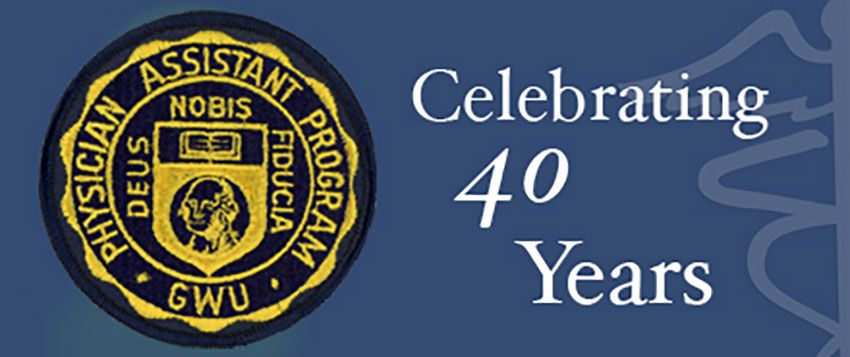
The 1960s was an era of social change, a time when a number of medical corpsmen were returning home from the Vietnam War searching for a way to re-enter the medical practice arena. These ex-military corpsmen with independent duty experience had extensive medical training. They possessed advanced skills dealing with acute injuries, laboratory medicine, X-ray capability, suturing, fracture stabilization, and ventilation therapy. To combat the shortage of primary care physicians, these ex-medical corpsmen began to fill many of the roles and responsibilities previously reserved for physicians. They successfully transitioned their medical training from the battlefield to the emergency room, working under the supervision of physicians, and from this influx of battle-tested medical technicians grew a new health care discipline; Physician Assistants (PA). Their duties included suturing minor injuries, applying and removing casts, administering medications, drawing blood, starting intravenous fluids, taking electrocardiograms, and performing simple lab tests.
The George Washington University Hospital began hiring corpsmen in 1969, straight from the battlefields in Vietnam. The initiative proved to be extremely successful. A year later GW Hospital confirmed through a quantitative systems analysis, as well as the favorable opinions of the staff and faculty that these veterans were capable health professionals who served as a valuable addition to the medical staff.
Two years later, in September 1972, the GW PA program was established in the Department of Health Care Sciences under Thomas E. Piemme, M.D., former professor of medicine and director of the department's division of general medicine at GW. The new education program was designed to enable these new health care practitioners to provide physicians with technically skilled personnel who could carry out a number of different tasks that until now were the sole responsibility of the physician. The PA profession started as part of a larger concept known as the new health practitioner movement. Piemme was a pioneer in the development of this movement in the United States. He successfully obtained federal funding through the Bureau of Heath Manpower Education at the National Institutes of Health to launch the program.
This year, GW’s PA program celebrates 40 years of preparing health professionals to assist and work collaboratively with physicians in the delivery of health care. The GW PA program was one of the first in the nation to be established in an academic medical center. To date, more than 2,000 PAs have graduated from the program. “For the past 40 years, we have continued to carry out our mission to train primary care physician assistants,” said Susan Dunphy, M.P.H., PA-C ’84, clinical assistant professor at GW School of Medicine and Health Sciences (SMHS). According to Dunphy, GW’s PA program is committed to addressing the needs of underserved populations by placing students in these areas of the community for clinic experiences.
“GW’s physician assistant program has grown in part because physician assistants have been so well-accepted into the United States health care system and are now utilized in virtually all types of clinical practice settings,” said James F. Cawley, M.P.H., PA-C, professor and interim chair of the department of prevention and community health and professor of PA studies at SMHS.
The program has continued to thrive since its inception. From the first class of 24 PAs who graduated in 1974, the program has grown to 62 PA graduates this year. In 1987, GW was the first to launch a joint Physician Assistant/Master of Public Health Degree (PA/M.P.H). The new degree option was created for students interested in the clinical application of preventive medicine. Today, PAs play a primary role in extending the services of physicians to deliver quality care in clinics, hospitals, and private health facilities.
There are roughly 80,000 PAs in clinic practice in the United States, and now more than ever, PAs are in high demand because of the rise of the inter-professional team approach to clinical care. Recently, the influx of new veterans from the Iraq and Afghanistan wars are creating a second wave of highly-skilled military candidates interested in pursuing the PA profession. Finally, the gender shift that has occurred in physician education is also occurring in PA education. Over the last 10 years, approximately 80 percent of entering PA students were female compared to GW’s first class of PA graduates, which was nearly 80 percent male.
Lisa Mustone Alexander, Ed.D., M.P.H., PA-C, the PA Program’s current director was among the small fraction of women entering GW’s PA program in 1977. “I felt incredibly intimidated by all of the men in my class, especially those who had served in Vietnam. In many ways, I believe society benefits from the diversity of our profession.”
“While women have re-balanced the early gender demographic of PAs, this shift is merely representative of another social change that expanded opportunities for women across all professions," she added. "Everyone benefits when there is a healthy diversity of individuals serving our increasingly diverse patient population.”
All of the PA program faculty are looking forward to reuniting with former students and colleagues during the 40th anniversary celebration, and reconnecting with the people responsible for helping establish and grow GW’s PA program. For them, the anniversary celebration means honoring the trailblazers who founded the program. Participating in the event will be the 144 current students, who will have a chance to hear the history of the PA program from many who helped shape the profession, rather than read about it in a book. No doubt, they will be inspired and energized by the event.


